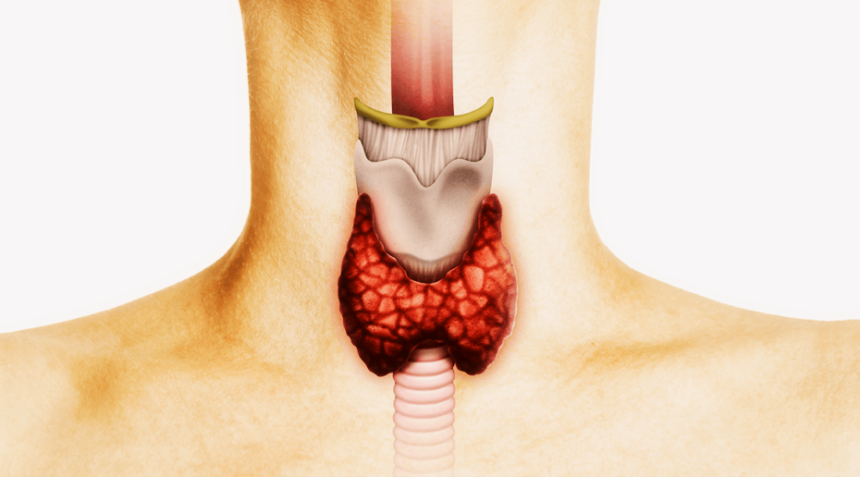The tiroidja gland is a small but mighty organ that plays a crucial role in the body’s endocrine system. Located at the base of the neck, this butterfly-shaped gland influences nearly every cell, tissue, and organ in the body. In this comprehensive guide, we will delve into the intricacies of the thyroid gland, its functions, disorders, treatments, and the importance of maintaining thyroid health.
Understanding the Tiroidja Gland
Anatomy of the Tiroidja
The tiroidja gland consists of two lobes connected by a narrow isthmus. It is situated below the Adam’s apple and wraps around the trachea. The gland is richly supplied with blood vessels, and its cells absorb iodine from the bloodstream to produce thyroid hormones.
Functions of the Tiroidja Gland
The primary function of the thyroid gland is to produce hormones that regulate metabolism. These hormones include:
- Thyroxine (T4): The main hormone produced by the thyroid gland, T4 is converted into the more active triiodothyronine (T3) in tissues.
- Triiodothyronine (T3): T3 is the active form of thyroid hormone that influences the metabolic rate of cells.
- Calcitonin: This hormone helps regulate calcium levels in the blood, although its role is less critical than that of T4 and T3.
Tiroidja Disorders
Hypothyroidism
Hypothyroidism occurs when the thyroid gland does not produce enough thyroid hormones. Symptoms of hypothyroidism include fatigue, weight gain, cold intolerance, dry skin, and depression. Common causes include:
- Hashimoto’s Thyroiditis: An autoimmune disorder where the body’s immune system attacks the thyroid gland.
- Iodine Deficiency: Iodine is essential for thyroid hormone production, and its deficiency can lead to hypothyroidism.
- Surgical Removal: Removal of the thyroid gland due to cancer or other conditions can result in hypothyroidism.
Hyperthyroidism
Hyperthyroidism is characterized by the overproduction of thyroid hormones. Symptoms include weight loss, rapid heartbeat, increased appetite, and anxiety. Causes of hyperthyroidism include:
- Graves’ Disease: An autoimmune disorder that stimulates the thyroid gland to produce too much hormone.
- Thyroid Nodules: Benign or malignant growths in the thyroid that can cause excessive hormone production.
- Thyroiditis: Inflammation of the thyroid gland, often leading to temporary hyperthyroidism.
Thyroid Nodules and Goiter
- Thyroid Nodules: These are lumps in the thyroid gland that can be benign or malignant. Most nodules are non-cancerous, but they require evaluation to rule out cancer.
- Goiter: An enlargement of the thyroid gland, which can be due to iodine deficiency, autoimmune diseases, or nodules.
Thyroid Cancer
Thyroid cancer is relatively rare but is becoming more common. There are several types of thyroid cancer, including:
- Papillary Thyroid Cancer: The most common type, which tends to grow slowly.
- Follicular Thyroid Cancer: Includes Hürthle cell cancer, tends to be more aggressive than papillary cancer.
- Medullary Thyroid Cancer: Arises from parafollicular cells that produce calcitonin.
- Anaplastic Thyroid Cancer: A rare, aggressive form of thyroid cancer.
Diagnosis of Thyroid Disorders
Physical Examination
A thorough physical exam by a healthcare provider can reveal signs of thyroid dysfunction, such as swelling in the neck or changes in heart rate.
Blood Tests
- TSH (Thyroid-Stimulating Hormone): The most sensitive test for assessing thyroid function. High TSH levels indicate hypothyroidism, while low levels indicate hyperthyroidism.
- Free T4 and Free T3: These tests measure the levels of thyroid hormones in the blood.
- Thyroid Antibodies: Tests for antibodies can help diagnose autoimmune thyroid diseases like Hashimoto’s thyroiditis and Graves’ disease.
Imaging Studies
- Ultrasound: An imaging technique that uses sound waves to create a picture of the thyroid gland. It helps in evaluating nodules and goiter.
- Radioactive Iodine Uptake Test: Measures the thyroid’s ability to absorb iodine, helping to differentiate between different types of thyroid disorders.
- Fine Needle Aspiration Biopsy: A procedure to collect cells from a thyroid nodule to check for cancer.
Treatment of Tiroidja Disorders
Medications
- Levothyroxine: A synthetic form of T4 used to treat hypothyroidism.
- Antithyroid Drugs: Medications like methimazole and propylthiouracil are used to reduce thyroid hormone production in hyperthyroidism.
- Beta-Blockers: These drugs help manage symptoms of hyperthyroidism, such as rapid heartbeat and anxiety.
Radioactive Iodine Therapy
Radioactive iodine is used to destroy overactive thyroid tissue in hyperthyroidism and to treat certain types of thyroid cancer.
Surgery
- Thyroidectomy: The surgical removal of all or part of the thyroid gland. It is used to treat thyroid cancer, large goiters, and hyperthyroidism that does not respond to other treatments.
Lifestyle and Dietary Considerations
- Iodine Intake: Ensure adequate iodine intake through diet or supplements to support thyroid function.
- Regular Monitoring: Regular check-ups and blood tests are crucial for managing thyroid disorders effectively.
- Balanced Diet: A diet rich in vitamins, minerals, and antioxidants supports overall thyroid health.
Conclusion
Maintaining tiroidja health is essential for overall well-being. Early detection and proper management of thyroid disorders can prevent complications and improve quality of life. If you experience symptoms of thyroid dysfunction, consult a healthcare provider for appropriate evaluation and treatment.



